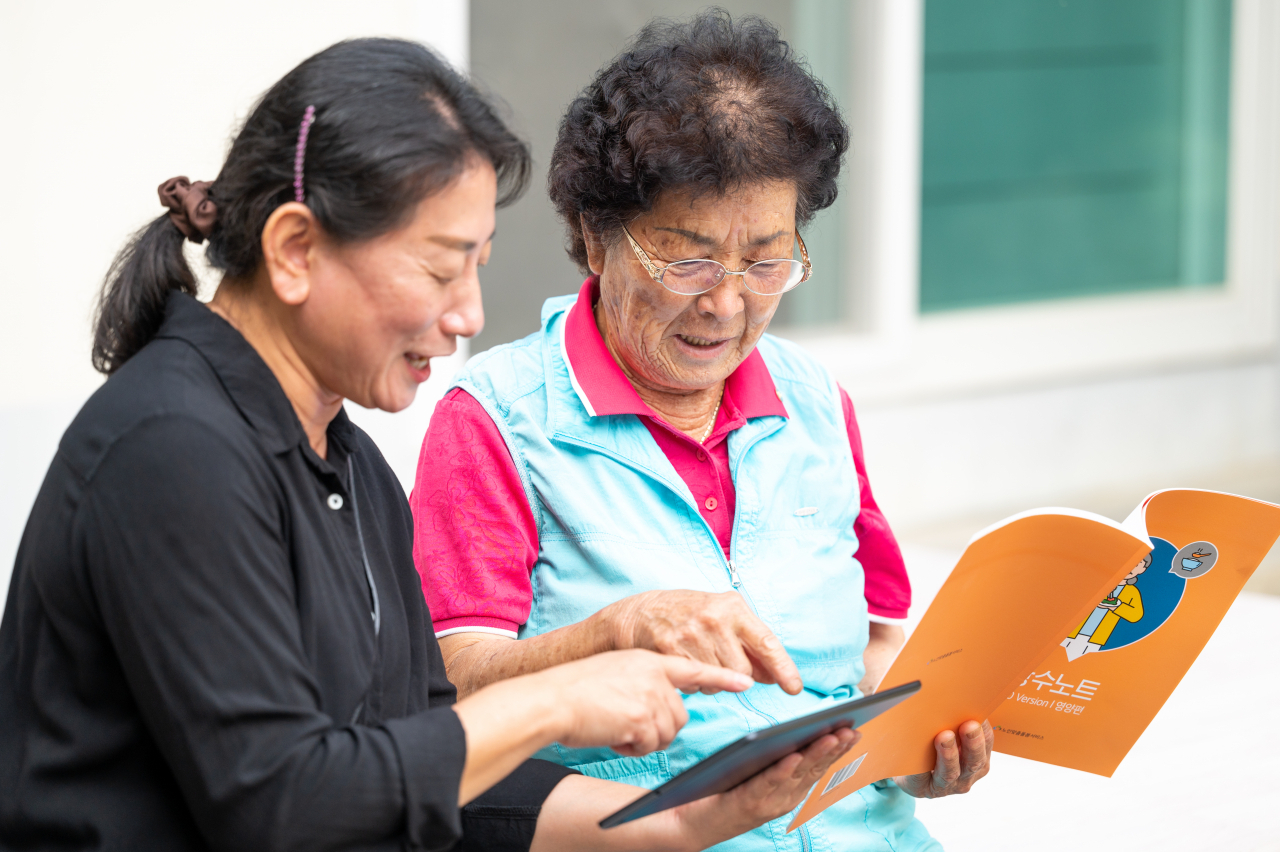 |
Older Koreans learn about using digital devices. (Comprehensive Support Center for the Elderly Living Alone) |
The number of older adults in South Korea surpassed 8 million in 2020, and is expected to increase to 15 million in 2036. Becoming a super-aging society means the country faces many different social problems. Older adults who live alone need more care and protection than any other generation because many are socially isolated and more likely to pass away alone in what is called “solitary death.” The Comprehensive Support Center for the Elderly Living Alone was established with public-private cooperation to provide care services and create community safety networks for vulnerable older people. General Manager Kim Hyun-mi shared the agency’s major roles and plans.
What is the necessity for and value of customized care services for the elderly?
With the rapid rise of low fertility rates and an aging population, the number of older people in need of care has increased substantially. Integrated efforts from all sectors can help to respond to the reduction in the working population. Customized care services for older adults is a comprehensive policy to provide a community care system that allows the elderly to live in their homes. We are trying to provide support for the elderly regardless of income, age and ability level so that they can enjoy services personalized to their individual needs without leaving their homes and be a part of their communities.
What steps are being taken to support older adults’ self-reliance?
Services to support older adults’ self-reliance cover various areas. For safety, regular communication and emergency management using IT technology are provided. We promote educational programs for social engagement and elderly life, and provide mobility supportive services and housekeeping support for the elderly with physical challenges. For those with economic difficulties, financial support is offered using welfare funds raised by the public and private sector.
Does the private sector’s participation in elderly care need to be extended?
Increasingly, social support plays a significant role in overall health for older people. There are efforts to expand customized care services for older people through systemic and policy improvements. With these efforts, we can strengthen the role of public concern and the private welfare system’s sense of responsibility. Corporate social contributions and donations are urgently needed to ensure that public health efforts for older adults are aligned with private welfare services.
How has care for the elderly with digital healthcare technology become more widespread?
The COVID-19 pandemic is having a major impact on the health and well-being of older people. Social distancing presents many challenges for the elderly. While older adults feel more isolated, many of them feel positive about the benefits of technology. There's an education program to familiarize older people with digital devices such as kiosks and smartphones. The interest in and demand for smart health management using digital devices has increased. Challenges remain, but we expect that these technologies will support older people in various aspects of healthy aging.
Can you send a message of hope to vulnerable elderly people?
Elderly people deserve the highest respect. This includes quality health care to allow for the best quality of life for those who have helped build the society we currently enjoy. We promise to make every effort to realize the aim of “aging in place.”
By Yang Jung-won (7toy@heraldcorp.com)
![[KH Explains] Why Korea's so tough on short selling](http://res.heraldm.com/phpwas/restmb_idxmake.php?idx=644&simg=/content/image/2024/05/19/20240519050115_0.jpg)
![[News Focus] Mystery deepens after hundreds of cat deaths in S. Korea](http://res.heraldm.com/phpwas/restmb_idxmake.php?idx=644&simg=/content/image/2024/05/17/20240517050800_0.jpg)





